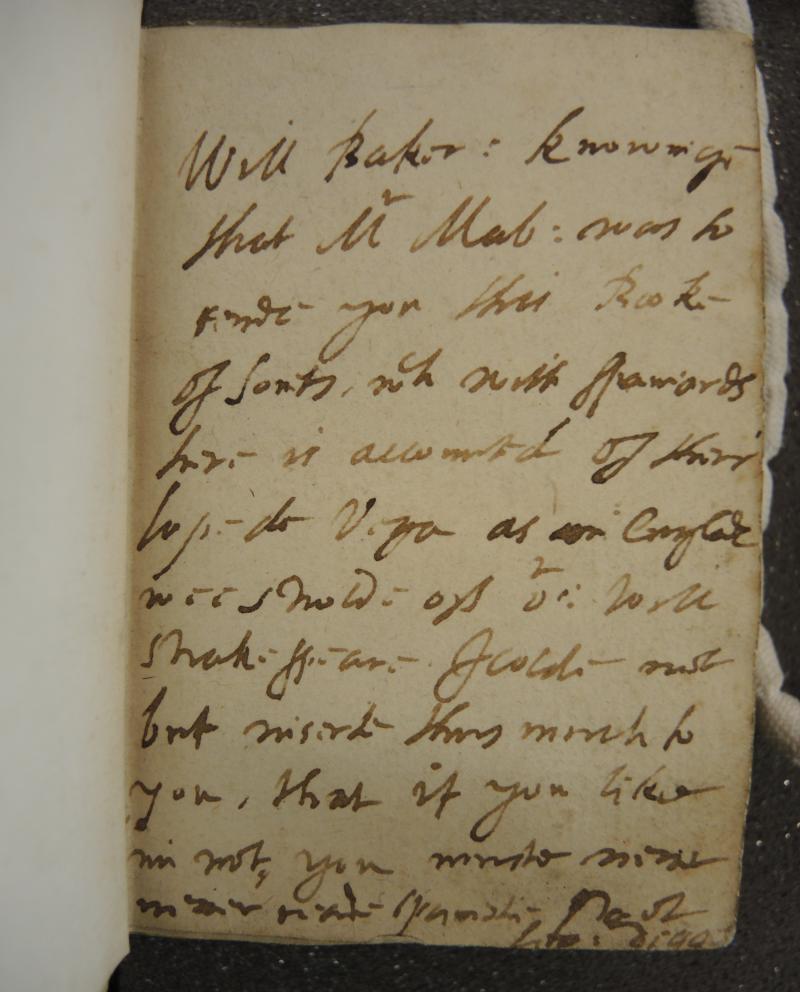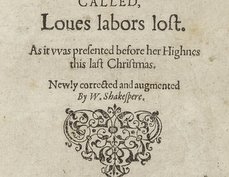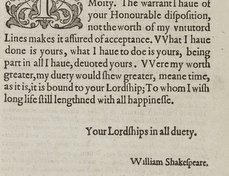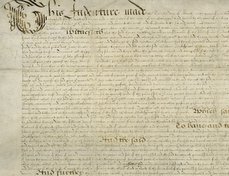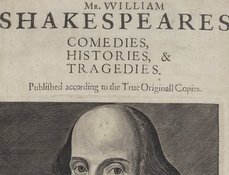Reproduced by kind permission of the Master and Fellows of Balliol College
Terms of use
Balliol College has graciously contributed the above images from their collections to Shakespeare Documented, and retains sole ownership of said images. Visitors may download, link to and cite the images within Shakespeare Documented in personal research only. Any further use, including, but not limited to, unauthorized downloading or distribution of the image is strictly prohibited. Visitors must contact Balliol College to request additional use, at: library@balliol.ox.ac.uk.
Copy-specific information
Creator: Lope de Vega
Title: Rimas de Lope de Vega Carpio.: Ao rade nueuo aña didas. Con el nueuo arte de hazer Comedias deste tiempo
Date: En Madrid: por Alonso Martin.; A costa de Miguel de Siles librero, Año 1613
Repository: Balliol College, Oxford, UK
Call number and opening: 30 a 152 (formerly 700.a.14), flyleaf
View online bibliographic record
Alan Nelson, "Rimas de Lope de Vega Carpio: Leonard Digges praises Shakespeare's Sonnets," Shakespeare Documented, https://doi.org/10.37078/147.
Balliol College, 30 a 152. See Shakespeare Documented, https://doi.org/10.37078/147.
In 1613 Leonard Digges penned a note onto the fly-leaf of a copy of the third edition of Rimas de Lope de Vega Carpio, printed in Madrid the same year; the inscribed copy survives in the library of Balliol College, Oxford. Digges commends the sonnets of Lope de Vega by comparing the Spanish poet to “our Will Shakespeare,” whose sonnets were published four years earlier in 1609. Indeed, Digges elevates Shakespeare to the status of England’s national poet.
Born in London in 1588, Leonard Digges was the offspring of a brilliant and highly educated family. Both his grandfather Leonard, who died in 1571, and his father Thomas, who died in 1595, were mathematicians. Leonard’s mother Anne married her second husband, Thomas Russell, in 1603. Leonard matriculated at Oxford from University College the same year. He soon became “well acquainted with both Spanish and French, and was a good classical scholar” (DNB). Indeed, he was to spend so much time away from Oxford -- partly in Spain -- that he would not receive his B.A. until October 31, 1616.
The “Will Baker” to whom Digges addressed his note was almost certainly the William Baker who matriculated (like Digges) from University College, Oxford, in July 1603. Baker hailed from Devonshire, and signed himself a gentleman.
The “Mr Mab” who was sending “this book” to William Baker was James Mabbe, born in 1572 and thus sixteen years Leonard’s senior. Mabbe matriculated from Magdalen College, Oxford, on February 9, 1588, becoming a fellow of the college in 1594, and retaining his fellowship, despite occasional absences, until 1633. He achieved his M.A. October 17, 1598, which entitled him to be called “Mr.”
In 1613 Sir John Digby was in the third year of service as England’s ambassador to Spain. In his entourage, probably in Madrid, were James Mabbe, who served as Digby’s secretary, and Leonard Digges, Mabbe’s friend and fellow Hispanophile.
Rimas de Lope de Vega was a best-seller in Spain. An earlier version went through two editions (1605, 1609), while this later version went through three editions (1611, 1612, 1613). Part 1 of the collection discussed here consists of 200 sonnets published in 1602 as the second part of “La Hermosura de Angelica” (“The Beauty of Angelica”): this section was directly comparable to Shakespeare’s English sonnets.
Putting all these facts together, it is clear that in 1613 James Mabbe acquired a copy of the most recent edition of Rimas de Lope de Vega Carpio for his friend William Baker in Oxford. Before Mabbe dispatched the volume from Spain, his friend Leonard Digges contrived to pen a personal note to Baker on the flyleaf, informing Baker that Lope de Vega’s poems were to the Spanish (“here”) what Shakespeare’s were to the English. Digges obviously had in mind Shake-speares Sonnets, published in quarto in 1609. Digges’s use of the form “our Will Shakespeare,” like his use of the familiar “Will Baker,” suggests that he was sufficiently familiar with the poet to call him by his nickname. Indeed, we would expect no other from a young man whose step-father, Thomas Russell, Shakespeare would name as overseer of his will a mere three years later.
Leonard Digges enjoyed subsequent success as a translator from Latin and from Spanish, and fancied himself a poet in English. Both Digges and James Mabbe contributed poems in praise of Shakespeare to the First Folio of 1623. Digges composed a second poem on Shakespeare, prefixed to the 1640 edition of Shakespeare’s poems. It has been said of these two poems that “[f]ew contemporaries wrote more sympathetically of Shakespeare’s greatness” (DNB).
Incidentally, while William Shakespeare is often praised for his immense productivity – more than thirty-six plays and 154 sonnets in a lifetime – Lope de Vega produced some 1,587 sonnets, 1,800 plays, in addition to novels, novellas, and epic poems (Encyclopedia Britannica). In England, Thomas Heywood claimed to have had “an entire hand or at least a main finger” in 220 plays (ODNB). While the quality of William Shakespeare’s work cannot be gainsaid, the quantity of his output is often exaggerated.
Will Baker: Knowinge
that Mr Mab: was to
sende you this Booke
of Sonets, which with Spaniards
here is accounted of their
Lope de Vega as in Englande
wee sholde of our Will
Shakespeare. I colde not
but inserte thus much to
you, that if you like
him not, you muste neuer
neuer reade Spanishe Poet
Leo: Digges
Written by Alan H. Nelson
Sources
“Lope de Vega,” in Encyclopædia Britannica Online. Accessed March 22, 2016, http://www.britannica.com/biography/Lope-de-Vega.
David Kathman, "Heywood, Thomas (c.1573–1641)," in Oxford Dictionary of National Biography. (Oxford University Press, 2004). Accessed May 19, 2016, http://www.oxforddnb.com/view/article/13190.
Paul Morgan, “‘Our Will Shakespeare’ and Lope de Vega: An Unrecorded Contemporary Document,” Shakespeare Survey 16 (1963): 118-20.
Samuel Schoenbaum, William Shakespeare: A Documentary Life (New York: Oxford University Press, 1975): 256.
Leslie Stephen, ed. “Leonard Digges,” in Dictionary of National Biography, vol. 15. (New York: MacMillan and Co., 1888): 71.
Lope de Vega, Rimas de Lope de Vega Carpio. Aora de nuevo añadidas. Con el nuevo arte de hazer Comedias deste tiempo. Primera, y segunda Parte. 16o (gathered in 8’s). (Madrid: 1613). Copy: Balliol College Oxford Library printed book, Shelf-mark 700 a 14.
Last updated November 14, 2022

